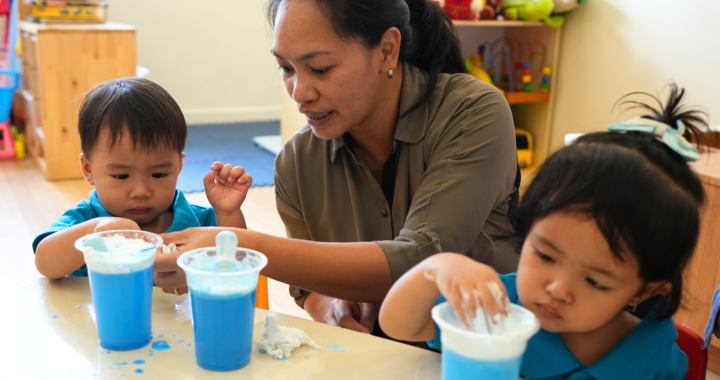In early childhood, nurturing emotional intelligence sets the stage for empathetic, resilient adults. Drawing from expert insights, this guide shows how to teach emotional intelligence through simple, everyday practices, turning challenges into opportunities for growth.
What is Emotional Intelligence and Why is it Needed in the Early Stage?
Emotional intelligence is the ability to recognize, understand, and manage your emotions. At its core lies empathy: feeling and responding to what someone else experiences.
For young kids, starts with feeling heard and validated, creating a “safe base” during stressful moments.
Neuroscientists and parenting experts emphasize that practicing empathy early fosters deeper connections and generosity, helping children grow into emotionally intelligent adults.
The Power of Starting Emotional Intelligence Training in Early Childhood
Researchers show kids with strong emotional intelligence handle emotions better, leading to mature, compassionate individuals.
Brief empathy exercises, like watching touching videos, enhance generosity for the children and make them kinder and build their sympathy towards others.
Parents often jump to “fix” mode with logic, but empathy calms the storm first, opening doors to real communication.
Think of it as reframing big feelings as connection opportunities. This approach, backed by experts like neuroscientist William Stixrud, builds a happy home where kids feel accepted.
Practical Strategies to Teach at Home
Empower your toddler or preschooler with these actionable tips:
1. Stay Calm and Reframe: Manage your anger, recognize the big emotions with your child and reframe tantrums as chances to connect. It will help them to think logically and have clear communications.
2. Validating Feelings: Kids need to be heard, and avoid being judgemental at them, instead do validate and try to understand their feelings through questions and statements that reassure them that they are being accepted for being what they are.
3. Accept Their Best Effort: Remember that children do well when they can. Investigate underlying needs without judgment.
4. Be Beside Them: Discuss how they feel about their problem and give your advice so they may understand others’ point of view and learn to solve it themselves.
Empower Your Child’s Future
Teaching emotional intelligence early isn’t just beneficial, it is also transformative. You will raise kids who empathize, collaborate, and thrive.
Start today, try to validate one feeling, and watch the connections bloom. Explore expert resources and integrate these habits daily.
Professional Source from:
Read more – Doremi Foundation – International School in Bali
